
The Tokyo Stock Exchange, abbreviated as Tosho (東証) or TSE/TYO, is a stock exchange located in Tokyo, Japan.

London Stock Exchange (LSE) is a stock exchange in the City of London, England, United Kingdom. As of August 2023, the total market value of all companies trading on the LSE stood at $3.18 trillion. Its current premises are situated in Paternoster Square close to St Paul's Cathedral in the City of London. Since 2007, it has been part of the London Stock Exchange Group. The LSE is the most-valued stock exchange in Europe as of 2023. According to the 2020 Office for National Statistics report, approximately 12% of UK-resident individuals reported having investments in stocks and shares. According to the 2020 Financial Conduct Authority (FCA) report, approximately 15% of UK adults reported having investments in stocks and shares.

The Toronto Stock Exchange is a stock exchange located in Toronto, Ontario, Canada. It is the 10th largest exchange in the world and the third largest in North America based on market capitalization. Based in the EY Tower in Toronto's Financial District, the TSX is a wholly owned subsidiary of the TMX Group for the trading of senior equities.

TMX Group Limited is a Canadian financial services company that operates equities, fixed income, derivatives, and energy markets exchanges. The company provides services encompassing listings, trading, clearing, settling and depository facilities, information services as well as technology services for the international financial community.

Singapore Exchange Limited is a Singapore-based exchange conglomerate, operating equity, fixed income, currency and commodity markets. It provides a range of listing, trading, clearing, settlement, depository and data services. SGX Group is also a member of the World Federation of Exchanges and the Asian and Oceanian Stock Exchanges Federation. it is ASEAN's second largest market capitalization after Indonesia Stock Exchange at US$585.97 billion as of September 2023.
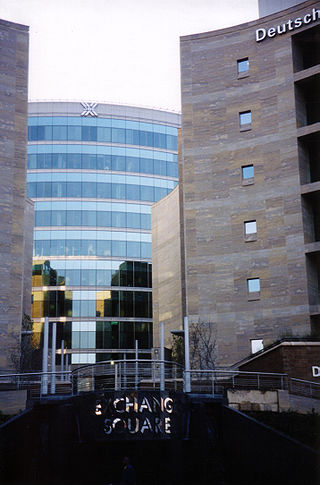
JSE Limited is the largest stock exchange in Africa. It is located in Sandton, Johannesburg, South Africa, after it moved from downtown Johannesburg in 2000. In 2003 the JSE had an estimated 473 listed companies and a market capitalisation of US$182.6 billion, as well as an average monthly traded value of US$6.399 billion. As of March 2022, the market capitalisation of the JSE was at US$1.36 trillion.
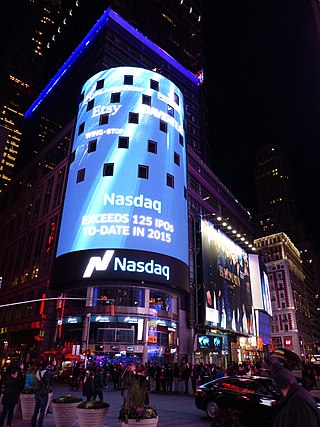
Nasdaq, Inc. is an American multinational financial services corporation that owns and operates three stock exchanges in the United States: the namesake Nasdaq stock exchange, the Philadelphia Stock Exchange, and the Boston Stock Exchange, and seven European stock exchanges: Nasdaq Copenhagen, Nasdaq Helsinki, Nasdaq Iceland, Nasdaq Riga, Nasdaq Stockholm, Nasdaq Tallinn, and Nasdaq Vilnius. It is headquartered in New York City, and its president and chief executive officer is Adena Friedman.
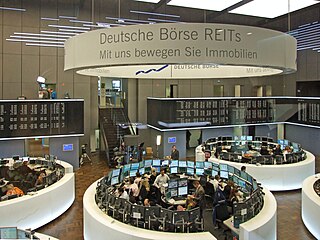
Deutsche Börse AG, or the Deutsche Börse Group, is a German multinational that offers a marketplace for organizing the trading of shares and other securities. It is also a transaction services provider, giving companies and investors access to global capital markets. It is a joint stock company and was founded in 1992, with headquarters in Frankfurt. On 1 October 2014, Deutsche Börse AG became the 14th announced member of the United Nations Sustainable Stock Exchanges initiative.

Borsa Italiana, based in Milan at Mezzanotte Palace, is the Italian stock exchange. It manages and organises domestic market, regulating procedures for admission and listing of companies and intermediaries and supervising disclosures for listed companies.
EDX London was a derivatives exchange managed by the London Stock Exchange that was absorbed into the Turquoise trading platform in 2011. The market was set up in 2003 to combine the liquidity and expertise of the LSE with advanced derivatives technology offered by Sweden's OMX AB. Members of EDX could trade either standardized or flexible futures and options on indices or single stocks. Trading took place on the three Scandinavian linked exchanges, the Stockholm Stock Exchange, Copenhagen Stock Exchange, and Oslo Børs as well as some Russian stocks.
Electronic Broking Services (EBS) is a wholesale electronic trading platform used to trade on the foreign exchange market (FX) with market-making banks. It was originally created as a partnership by large banks and then became part of CME Group.
Turquoise is an equities trading platform, created by nine major investment banks in 2008. The aim was to provide dealing services at a 50% discount to traditional exchanges. It is a hybrid system that allows trading both on and off traditional exchanges. The system was advertised as a "pan-European platform based in London".

London Stock Exchange Group plc is a United Kingdom-based stock exchange and financial information company headquartered in the City of London, England. It owns the London Stock Exchange, Refinitiv, LSEG Technology, FTSE Russell, and majority stakes in LCH and Tradeweb.
A multilateral trading facility (MTF) is a European Union regulatory term for a self-regulated financial trading venue. These are alternatives to the traditional stock exchanges where a market is made in securities, typically using electronic systems. The concept was introduced within the Markets in Financial Instruments Directive (MiFID), a European Directive designed to harmonise retail investors protection and allow investment firms to provide services throughout the EU.

In finance, an electronic trading platform also known as an online trading platform, is a computer software program that can be used to place orders for financial products over a network with a financial intermediary. Various financial products can be traded by the trading platform, over a communication network with a financial intermediary or directly between the participants or members of the trading platform. This includes products such as stocks, bonds, currencies, commodities, derivatives and others, with a financial intermediary such as brokers, market makers, Investment banks or stock exchanges. Such platforms allow electronic trading to be carried out by users from any location and are in contrast to traditional floor trading using open outcry and telephone-based trading. Sometimes the term trading platform is also used in reference to the trading software alone.
High-frequency trading (HFT) is a type of algorithmic trading in finance characterized by high speeds, high turnover rates, and high order-to-trade ratios that leverages high-frequency financial data and electronic trading tools. While there is no single definition of HFT, among its key attributes are highly sophisticated algorithms, co-location, and very short-term investment horizons in trading securities. HFT uses proprietary trading strategies carried out by computers to move in and out of positions in seconds or fractions of a second.
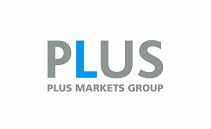
PLUS Markets Group was a UK electronic stock exchange based in London for small cap companies that was acquired by ICAP in 2012 and rebranded as Icap Securities and Derivatives Exchange (ISDX). It was a market operator under MiFID Markets in Financial Instruments Directive, and was both a regulated market and a multilateral trading facility.
TradElect was the London Stock Exchange's main electronic trading platform from 2007 to 2011. It ran on Microsoft Windows, using .NET technology and Microsoft SQL Server. Its development took four years from project inception to rollout and had a total cost of £40 million.
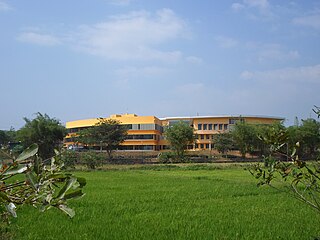
MillenniumIT ESP is a Sri Lankan information technology company that provides enterprise solutions with a portfolio that includes stock exchange systems, infrastructure platforms, cyber security systems, managed services, automation, and cloud services. Headquartered in Colombo, Sri Lanka, MIT ESP also offers industry-specific solutions tailored for banking and finance, telecommunications, government, manufacturing and retail, and commercial sectors.
Atom Asset Exchange (AAX) is a defunct cryptocurrency exchange that offered spot, perpetual contracts and savings products across a wide variety of digital assets, including Bitcoin, Ethereum and others.












